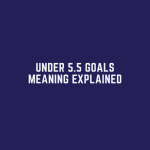Understanding the Mega Millions Game
Mega Millions is a popular lottery game that offers large cash prizes to lucky winners. Players select five numbers from a set of balls numbered 1 to 70, as well as one Mega Ball number from a separate set of balls numbered 1 to 25. To win the jackpot, players must match all six numbers drawn during the bi-weekly drawings. Additionally, there are secondary prize tiers for matching fewer numbers or combinations.
The odds of winning the Mega Millions jackpot are quite challenging, with a 1 in 302.6 million chance of hitting the massive jackpot. Despite the long odds, many people are drawn to the game due to the excitement of potentially becoming an instant millionaire. It’s essential for players to understand the game’s rules and odds before purchasing tickets to make informed decisions about their participation.
Choosing Your Numbers Wisely
When selecting your numbers for the Mega Millions game, it’s crucial to approach it with a strategic mindset. Many players are tempted to choose dates significant to them such as birthdays or anniversaries. While this can add a personal touch to your selection, it’s important to remember that numbers above 31 represent days in a month and could potentially limit your range of numbers.
Another approach to choosing your numbers wisely is to mix both high and low numbers. It’s common for players to stick to a certain range, whether it’s picking only single digits or numbers above 30. By incorporating a mix of high and low numbers, you increase your chances of covering a broader spectrum of possible winning combinations. This strategic blending can potentially enhance your odds of hitting the jackpot.
Deciding on the Number of Tickets to Purchase
When it comes to deciding on the number of tickets to purchase for the Mega Millions game, it’s essential to strike a balance between increasing your chances of winning and staying within your budget. Some players opt to buy multiple tickets in the hopes of increasing their odds, while others prefer to purchase just one or two tickets and rely on luck alone.
Before deciding on the number of tickets to buy, consider your overall lottery strategy and how much you are willing to spend on tickets. Keep in mind that while buying more tickets can improve your chances slightly, there are no guarantees in gambling. It’s important to set a budget for your lottery purchases and stick to it to ensure that you are playing responsibly and within your means.
Considering Joining a Lottery Pool
When it comes to playing the Mega Millions game, joining a lottery pool can be a strategic choice for many players. By teaming up with others, you can increase your chances of winning without having to invest as much money individually. This is especially beneficial for those who want to participate in the excitement of the lottery without shouldering all the financial burden themselves.
Joining a lottery pool also allows for a shared sense of camaraderie and fun among participants as they collectively await the drawing results. It can be an enjoyable way to engage with friends, family, or coworkers while pursuing the dream of hitting the jackpot together. Additionally, pooling resources can enable individuals to afford a larger number of tickets, potentially boosting their odds of winning a prize in the Mega Millions game.
Setting a Budget for Your Bets
Setting a budget for your lottery bets is an essential component of responsible gambling. It is important to be realistic about what you can afford to spend on lottery tickets each week. By setting a budget, you can ensure that you are not risking more money than you can comfortably lose.
When determining your lottery budget, consider your overall financial situation and prioritize essential expenses such as bills, groceries, and savings before allocating funds for lottery tickets. Remember that the lottery is a form of entertainment and not a reliable source of income. By setting a reasonable budget for your bets, you can enjoy playing the lottery without putting your financial well-being at risk.














